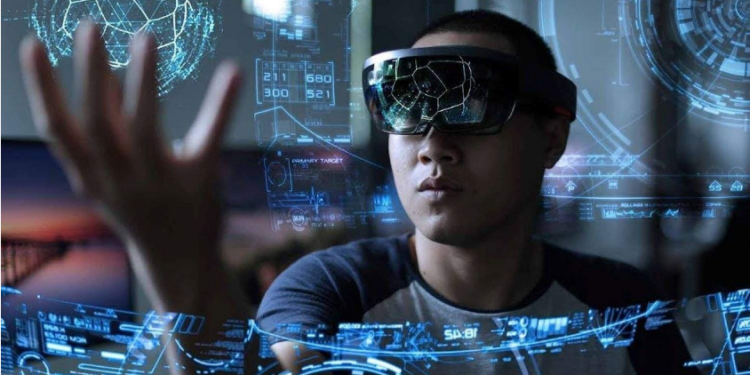AI’s impact on development is not just a fleeting trend; it has a fundamental shift redefining the industry’s essence. Around 2.5 billion active gamers seek immersive, adaptive, personalized games to satisfy their needs.
AI is here to assist. Those who utilize this artificial technology will gain unprecedented insights, guiding their decisions in ways that lead to successful gaming experiences.
This article will shed light on why AI in gaming is not just a fad but a giant stride revamping the way developers work, never like before.
Use Cases of AI in the Gaming Industry
AI can assist in procedural task data analysis and optimization, accommodating developers’ special focus on creative and technical aspects of game development services.
A Deloitte study found that 59% of gamers are more likely to play your game if it has a user’s personal preferences. AI has many use cases other than personalization.
Procedural Content Generation for Games
AI and machine learning techniques are used to procedurally generate game environments, levels, quests, and even entire game worlds. This reduces development time and costs and increases game replayability by ensuring unique player experiences.
Intelligent NPCs
AI algorithms create lifelike and intelligent NPCs that exhibit realistic behaviors, authority, and reactions. This enhances immersion and believability within the game environment. AI powered NPCs can adapt strategies and behaviors that align with player actions to make gameplay dynamic and challenging.
Adaptive Difficulty and Personalization
AI systems can dynamically analyze player behavior, skills, and preferences to adjust a game’s difficulty and challenge. Players involved in the gameplay have separate skill levels, and each will seek unique experiences that cater to their needs. AI use in game development will improve player engagement and retention.
Game Testing and Debugging
Conventional game testing approaches are prolonged; for a basic game, it takes around 3 to 6 months. However, since developers have been getting support from AI in testing and QA, the game testing process, identifying bugs, and optimizing gameplay performance have become entirely autonomous. AI helps game developers simulate many gameplay scenarios to uncover issues more efficiently than manual testing, accelerating game development services.
Conversational Interfaces and Virtual Assistants
AI chatbots and virtual assistants are integrated into games, making in game interaction much more convenient. It ensures that players are ready to interact with the characters through natural language. This enhances storytelling through personalized assistance and information for players.
Generative Art and Music
Generative music or art with the game development can be used for unique in-game art, textures, and music. It will reduce the burden on human artists and composers. The use of AI music and art will extract diverse and personalized game aesthetics due to its ability to produce content for large and big games quicky.
Game Development’s Future: What AI Has in Store
Generative AI in Gaming
Many game developers already use generative AI models like GPT, Copilot, and Stable Diffusion to create gaming content. They use them to create game assets like 3D models, textures, audio, and even entire game levels and narratives. It speeds up the game development process and reduces its extravagant expenses. Advances in generative AI models will lead to dynamic game environments that adapt to player actions and preferences.
Cloud Gaming Services
Cloud gaming platforms like Google Stadia, NVIDIA GeForce NOW, and Amazon Luna allow players to stream games directly from the cloud. This eliminates hard software and hardware requirements that were paramount for operating big games. AI in the cloud gaming niche has optimized resource allocation, enhanced graphics rendering, and improved latency based on player behavior and network conditions.
Hyper-Personalization
In the future, players will prefer hyper personalization within the game more over the other aspects involved in it. For this concern in the future, those who create highly customized experiences for each player. This includes personalized content, difficulty levels, and recommendations. Artificial intelligent asses those player data, behaviors, and preferences to deliver bespoke gaming experiences that keep players engaged and coming back.
Blockchain and NFTs
Blockchain technology and NFT will be used in gaming applications for unique digital assets such as track ownership and provenance and secure purchases in gaming. It will perk new business models with digital assets and maximize players’ satisfaction.
AR, VR, and Metaverse
The convergence of augmented reality (AR), virtual reality (VR), and the metaverse concept is an exciting frontier for game development. AI will create eagerness for realistic avatars, intelligent NCPs, and dynamic virtual environments that amuse game players with their own preferences.
Read more: AR Apps for Business
To Sum Up
AI in the game development niche will undoubtedly drive more intelligent, personalized, and engaging gaming experiences in the future. It will birth several trends, and innovations that will be followed by a well positioned game development companies for a competitive edge.
Integrating AI tools in the development road will benefit 3D game developers to play an optimistic role in the next generation of captivating games, redefining the industry’s future.






